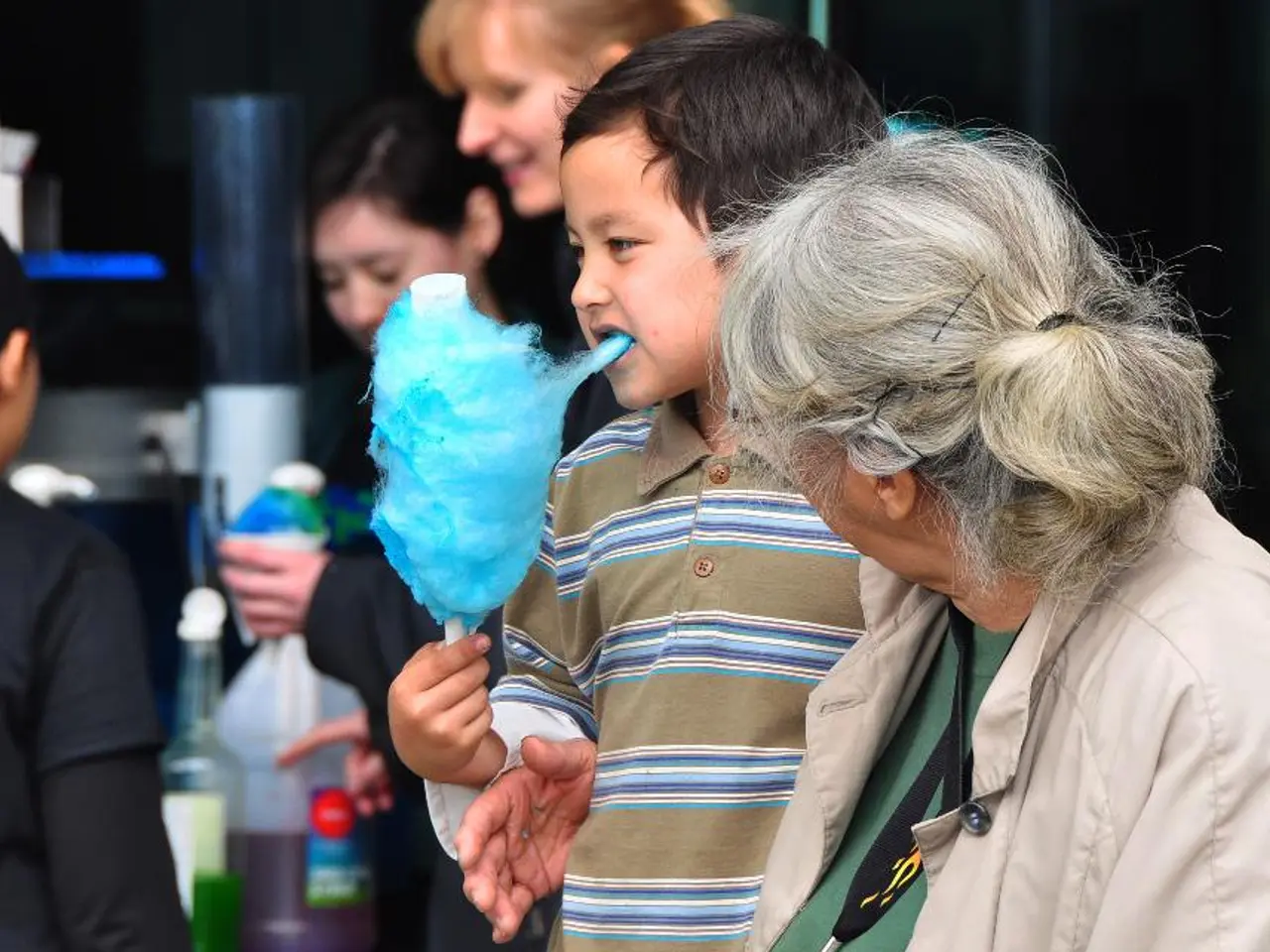Guiding and Assisting Troubles with Adolescent Eating Disorders
In recent years, there has been a concerning increase in eating disorders among young people worldwide, including Germany. According to a report by The Lancet Psychiatry Commission on youth mental health, this rise may be linked to global trends such as societal changes, social media, wars, and climate change, which lead to increased distress, alienation, and loneliness.
When a young person is struggling with an eating disorder, it's essential to approach the situation with empathy and understanding. Friends and family should not feel solely responsible for addressing the issue, but they can offer significant support.
Counseling centers provide a professional context for initial support. However, the Covid pandemic has led to a reduction in counseling and treatment offers, which could have addressed psychological problems early on. It's crucial to encourage the affected individual to seek professional help, recognizing that this can be an intimidating step for them.
Effective strategies for family members and friends include active involvement in treatment and recovery, empathetic communication, encouragement to seek professional help, and providing practical and emotional support during daily challenges.
One approach that has proven effective is Family-Based Treatment (FBT), particularly for children and adolescents. This approach involves family members actively managing and supervising nutritional rehabilitation at home, supporting weight restoration, and gradually helping the individual resume control over their eating and coping skills.
Communication plays a vital role in supporting individuals with eating disorders. Acknowledging their feelings without judgment and using open, honest conversations to gently encourage treatment can help keep communication lines open and build trust.
Practical support with daily challenges, such as meal preparation and planning, can also be beneficial. Helping create safe, supportive environments during meals by using techniques like distraction, grounding exercises, and recovery affirmations can reduce anxiety around eating.
It's important for family and friends to take care of their own wellbeing as well. Seeking support groups can help manage stress and avoid burnout, ensuring they remain effective advocates and sources of support for the individual.
Eating disorders can become deeply ingrained, making it difficult for the affected person to overcome. However, it's essential to remember that eating disorders, even severe cases, are treatable and curable. In a follow-up study on psychotherapy for anorexia, 41% of patients could be classified as recovered five years after the end of therapy.
The Federal Institute for Public Health (BIG) provides information and advice on suitable local and regional contact points. If you or someone you know is struggling with an eating disorder, don't hesitate to reach out for help. The BIG phone number is 0221 892031, available Monday to Thursday from 10:00 to 22:00 and Friday to Sunday from 10:00 to 18:00.
Remember, handling a potentially harsh reaction is easier when you acknowledge the distress and suffering of the affected person. It's important to understand each person's role and responsibilities in the situation and not overload friends with responsibilities.
Eating disorders are often a way for people to regain control over their lives, particularly when they feel their lives are slipping out of their hands. It's crucial to approach the topic without making accusations or scolding, as this can be counterproductive. Instead, offer support, encouragement, and a listening ear.
[1] Lock, J., le Grange, D., Agras, W. S., & Dare, C. (2001). Family-based treatment for adolescent anorexia nervosa: a systematic review. The American Journal of Psychiatry, 158(5), 715-723.
[2] Lock, J., & le Grange, D. (2005). Family-based treatment for adolescent bulimia nervosa: a systematic review. The American Journal of Psychiatry, 162(6), 1099-1106.
[3] Lock, J., & le Grange, D. (2012). Family-based treatment for adolescent binge eating disorder: a systematic review. The American Journal of Psychiatry, 169(6), 602-610.
[4] Lock, J., & le Grange, D. (2015). Family-based treatment for adolescent eating disorders: a review of the evidence. The Lancet Psychiatry, 2(3), 221-230.
[5] le Grange, D., & Lock, J. (2011). Family-based treatment for adolescent eating disorders: a manual for parents and professionals. Guilford Press.
- Knowledge from scientific studies suggests that Family-Based Treatment (FBT) can be effective in dealing with eating disorders in children and adolescents, backed by research from sources like The American Journal of Psychiatry and The Lancet Psychiatry. [1-4]
- Friends and family members can find support for themselves through networking and stress management groups to prevent burnout while acting as effective advocates and constant sources of support for affected individuals. [5]
- Aside from counseling, nutrition plays a significant role in managing eating disorders. Practical assistance such as meal preparation, meal planning, and creating supportive meal environments can alleviate challenges for the individual struggling with their eating disorder.




